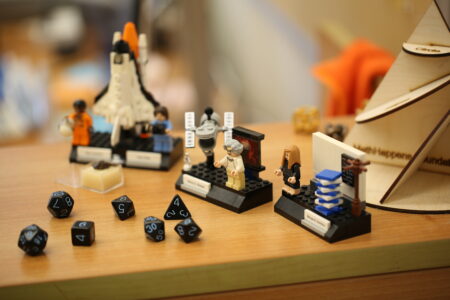While global conditions and humanity’s prospects for the future are disastrous, my own life has become a lot more stable and emotionally tolerable over the course of this past year of employment. The PhD did immense psychological damage to me. After a lifetime in a competitive education system in which I had done exceptionally well, the PhD tended to reinforce the conclusion that everything I did was bad and wrong, and that I had no control over what would happen to my life. I had serious fears about ever finding stable employment after that long and demoralizing time away from the job market (though still always working, to limit the financial damage from those extra years in school). Being out and employed — and even seeing shadows of other possibilities in the future — gives me a sense materially, psychologically, and physiologically of being able to rebuild and endure.
As noted in my pre-US-election post, having a stable home and income makes the disasters around the world seem less like personal catastrophes, though the general population are behaving foolishly when they assume that the 2020–60 period will bear any resemblance to the ‘normality’ of, say, the 1980–2020 period. Of course, there has been no such thing as intergenerational stability or normality since the Industrial Revolution; after centuries where many lives remained broadly similar, the world is now transforming every generation or faster. In the 20th century, much of that change was about technological deployment. In the years ahead, ecological disruption will be a bigger part of the story — along with the technological, sociological, and political convulsions which will accompany the collapse of systems that have supported our civilization for eons.
My own answer to living through a time of catastrophe — in many ways, literally an apocalypse and the end of humanity, as we are all thrown into a post-human future where technology and biology fuse together — is to apply myself in doing my best in everything I undertake, whether that’s photographing a conference, making sandwiches for dinner, or advocating for climate stability and reduced nuclear weapon risks.
None of us can control the world. A huge dark comet could wipe us out tomorrow. A supervolcano or a coronal mass ejection from the sun could abruptly knock us into a nuclear-winter-like world or a world where all our technology gets broken simultaneously, stopping the farm-to-citizens conveyer belt that keeps us alive. There are frighteningly grounded descriptions of how a nuclear war could throw us all into the dark simultaneously, perhaps unable to resume long-distance contact with others for months or years.
It really could happen all of a sudden, with no opportunities for takesies-backsies or improving our resilience after the fact. We live in a world on a precipice, so all we can do is share our gratitude, appreciation, and esteem with those who have enriched our lives while it is possible to do so, while retaining our determination to keep fighting for a better world, despite our species’ manifest inabilities and pathologies.


